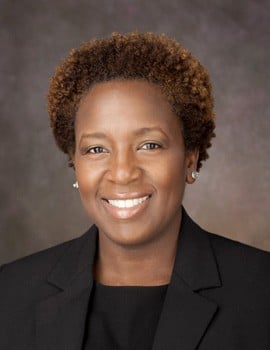I think that coming from an in-house role to the GC position is an easier transition than going directly from being a partner in a law firm, because the role is so different. Being the outside lawyer, you don’t have the perspective of the consigliere. Although folks can obviously be successful that way, I think that’s a bigger jump.
I would have loved to work in more industry sectors! But I think the unique thing about entertainment is that once you’ve started down that road, if you try to interview outside of the industry, there’s a lot of scepticism. People wonder why – it’s a desirable, sexy industry and people are more often trying to break into it rather than break out of it.
I have loved the job since I’ve been here because of the variety that it presents. One day I’m working on an FCC filing, the next day it’s a shareholder litigation, the next day it’s a big contract with our biggest licensing partner. I also like the opportunity to really feel like you are making an impact at the highest levels on the direction of the company – that’s something I hadn’t experienced before I became general counsel.
Just as I was starting the job, Starz went through something that was pretty unprecedented for the company – it was dropped from one of its distributors. Going through that entailed a lot of regulatory and political work, as well as transactional negotiations that was a huge challenge for me and for the rest of the company. Coming out of it with a deal was something that I’m proud we were able to achieve.
The general counsel position is in essence a generalist role. You’re not just the transactional lawyer, you’re also looking at litigation, regulatory issues, political issues, all of those things, and I don’t know that it’s very easy to get that experience prior to taking on the role. I was primarily a transactional lawyer – IP and entertainment – so I had done the corporate M&A stuff, the securities stuff, and also done IP and entertainment licensing and distribution, but I hadn’t done litigation. I had been involved, but I wasn’t the one leading litigation. I hadn’t done production work to the extent that I’m now responsible for. The best preparation you can do is to get involved in a lot of different things and try to get the broadest experience as you can. Even as a transactional lawyer, I would support litigation, which was useful experience.
When I was at Sony, I had been doing a certain type of entertainment work; I was good at it and it was my area of expertise. But after five plus years of doing that, I obviously wasn’t learning as much – it was like the back of my hand. I was looking around at other opportunities within the company and somebody advised me to consider another area in order to get experience I didn’t have. My response was: ‘Yeah, I’d be willing to try that, but I wouldn’t want to give up what I have now.’ I wanted to take on new things, but I didn’t want to let go of what I had.
The person wisely said: ‘You already know that stuff, it’s on your résumé, nobody can take that away from you. Everybody will know that you are an expert in that stuff after having done it for five or six years, so it’s ok for you to let that go in order to take on other responsibilities – and it will be better for your career growth.’ He really encouraged me to let go and make room for new things, and I thought that was really great advice. As soon as you’ve mastered something, it’s time to move on and get some other experience.
I’ve always told my teams, whether it was at Sony Pictures, Lionsgate or at Starz, that we need to advise the business not just from a legal standpoint, but from a strategic standpoint. When you think about a contract, the parts that are purely legal are all pretty boilerplate and a very small part. Our role is to bring up all of the concerning business points that might come up in a contract: does it really make sense for this agreement to be non-exclusive, does that fit with our strategy? Does it make sense for this to be a long-term deal? Maybe we want more flexibility to do this other thing next year? It’s really advising on the business strategy and what you see coming up in the future to help them achieve their business goals. I feel like I’ve been doing that since I started being a business lawyer and this is just a little bit more official now that I am general counsel.
I’d like to think that there was a move towards having more women in the GC role. I don’t know if I would say that mentoring and nurturing of diverse attorneys is increasing in the entertainment industry, but the Weinstein scandal may bring on some change. Maybe it will make women feel a little bit more emboldened to speak out about the need for diversity in the workplace – they can now point to that, so it doesn’t have to be so personal. Companies are letting go of people for all sorts of reasons related to the Weinstein issue, and it’s exciting to see that change is happening. I don’t know if it’s going to be sustainable, but there’s definitely more awareness and sensitivity than there ever has been before.









